Return to Kansas Cosmosphere
XLR-99 Engine
Disappearing into a photo of the aft of an X-15 is an XLR-99 rocket engine, the engine used by the X-15 except in the initial portion of its test program.
While the Lunar Module Descent Propulsion System engine is frequently cited as the first throttleable rocket engines, the XLR-99 was throttleable down to 50% (or 30%, depending upon the source).
The sign accompanying the engine (for which I do not have a separate photo) reads
The Thiokol XLR-99 Rocket Engine
Brute Force for the X-15
The heart of the X-15 design was the Thiokol XLR-99 rocket engine, displayed here. Nicknamed the "Big Engine," this monstrous, one-million horsepower engine propelled the X-15 to altitudes of over 60 miles above the Earth and to speeds in excess of 4,500 m.p.h., aircraft records that would not be broken until the Space Shuttle first flew in 1981.
The XLR-99 was perhaps the most advanced and complex man-rated rocket engine in the world during the early days of spaceflight. Because of the engineering challenges faced in building such a complex piece of hardware, the engine was delivered more than a year late. But thanks to the twin Black Betsy powerplant (on display to your left), the initial X-15 test program was able to stay on schedule until the "Big Engine" arrived.
To achieve its 57,000 pounds of thrust, the XLR-99 burned nearly 2,500 gallons of anhydrous ammonia and liquid oxygen in less than 90 seconds. It incorporated a unique design that enabled the engine thrust to be throttled from 30% to 100%. This design milestone proved to be very important to future manned spacecraft engines, specifically those used on the Lunar Module, which landed man on the Moon.
The Air Force Museum once had an XLR-99 rocket engine fact sheet.
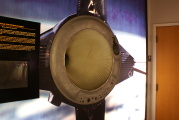 dsc99941.jpg |
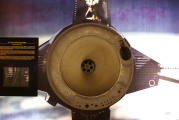 dsc99946.jpg |
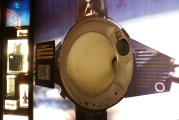 dsc99944.jpg |
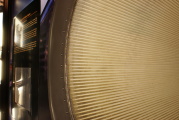 dsc99947.jpg |
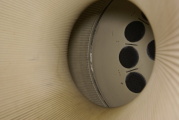 dsc99948.jpg |
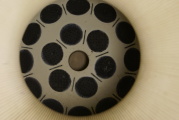 dsc99949.jpg |
Return to Kansas Cosmosphere